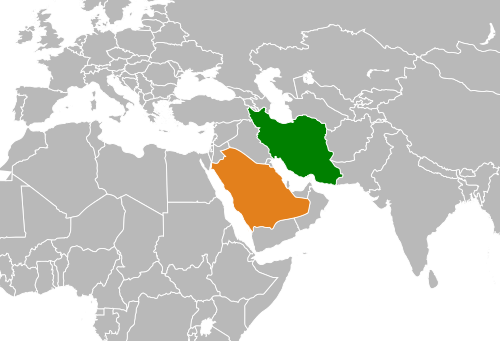At approximately 0400 EST, reports began to emerge that Iran was in “important negotiations in a foreign country.” Iranian state-owned media began claiming that an important announcement was imminent. At 0700 EST, Saudi and Iranian media began reporting that diplomats from both countries signed an agreement to resume bilateral relations and reopen embassies in the next two months. This agreement was signed in Beijing, with the aid of Chinese arbiters.
? ????? ????? ?????? ????? ?????? ?????? ????? ? ??????? ????? ???? ?? ?????? ????? ?? ????? ?? ??? https://t.co/emsmt5EQXC pic.twitter.com/Nhops1HRbT
— ???????? ????? (@MizanNewsAgency) March 10, 2023
Iran’s Secretary of Supreme National Security told the press that the agreement was only possible after President Raisi’s trip to Beijing in February and that Chinese President Xi Jinping initiated the talks. The foreign ministers of both Iran and Saudi Arabia also thanked Iraq and Oman for hosting previous rounds of talks in 2021 and 2022 which helped allow today’s agreement. They also announced that the previous security cooperation signed in 2001 will be re-implemented.
Iran and Saudi Arabia have had no diplomatic relations following the attack on the Saudi embassy in Tehran in January 2016 after Saudi Arabia executed Sheikh Nimr al-Nimr, a Shia cleric. Bilateral relations between the countries have been strained over several geopolitical issues such as the interpretations of Islam, aspirations for leadership of the Islamic world, oil export policy, and relations with the United States and other Western countries.
Both countries are major oil and gas exporters and have clashed over energy policy. Saudi Arabia, with its large oil reserves and smaller population, has a greater interest in taking a long-term view of the global oil market and an incentive to moderate prices. In contrast, Iran is compelled to focus on high prices in the short term due to its low standard of living given recent sanctions after its decade-old war with Saddam’s Iraq and its larger population. (wiki)
There is a current proxy war with the U.S., Saudi Arabia, and Israel (among other Arab states) and Iran throughout several regions in the Middle East. Iran directly aids the Assad regime in Syria, the Houthis in Yemen, and Shia militias in Iraq. It is not clear if this agreement will help end these conflicts. However, this does signal how China has achieved immense influence in the Middle East, able to pull off its own Abraham Accords. When President Trump managed to normalize relations between Israel and several Arab nations in 2020, one of the most significant remaining tensions was between Iran and Saudi Arabia. Beijing can now tout its own peace initiative and use this agreement as a jumping-off point to further aid Iran which is still isolated by US-led sanctions.


